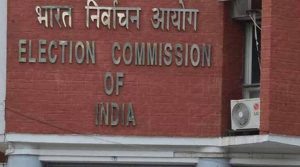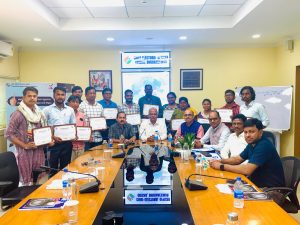Historic black town in America at risk of flooding.
Residents of Princeville were divided into groups: some wanted to stay, others wanted to leave, and some wanted to move to higher ground, while some just wanted to survive.

Princeville, North Carolina holds a special place in American history as the oldest town founded by Black people. However, this historic town is currently facing a tough decision due to a combination of factors including climate change, disasters, and lack of investment. The town, which was initially given to Black people in the 19th century because it was deemed too flood-prone by white people, is now facing the consequences of that decision. Residents are now faced with two options: stay and risk potential flooding during hurricane season or relocate to a safer area.
The town has been struggling to recover from the devastating Hurricane Matthew in 2016, which left the town in ruins. In the aftermath of the disaster, residents were presented with a few options: stay and rebuild, take government buyouts to relocate their families, or move the entire town to higher ground. However, due to a lack of funding and disagreements among town leaders, no action was taken and residents were forced to leave the town slowly, despite its rich history.
Although the town eventually received millions of dollars from the Federal Emergency Management Agency (FEMA) to rebuild on higher ground, a project to repair the levees by the Army Corps of Engineers has stalled, making relocation an even more appealing option for those who can afford it.
This situation has raised some concerns about the residents' attachment to the town. Even the town's mayor, Bobbie Jones, expressed his disinterest in a solution that involved moving the town. He firmly stated, "We're open to expansion, but we are not going to leave." However, he also explained that the residents' determination to stay stems from their deep connection to the town and the sacrifices made by their forefathers. As Mayor Jones told the Washington Post, "They say, 'This is who we are. This is sacred ground. Our forefathers shed blood, sweat, and tears here.'"
The town of Princeville is in a difficult position, caught between the desire to rebuild and the need to retreat to a safer location. According to Grist, "Disasters like those brought by Hurricane Matthew don't lead to complete rebuilds or complete retreats. Instead, they condemn towns like Princeville to a kind of indefinite limbo, trapped between the future and the past." The ongoing stalemate with the Army Corps of Engineers has only added to the town's struggles, resulting in a gradual loss of residents who have lost faith in the government's ability to protect their homes and lives in the event of another disaster.
While Mayor Jones opposes buyouts, some members of the community have accepted them, worried about the town's ability to withstand another major flood. In a way, FEMA has hedged its bets by providing funds for both rebuilding and relocation. These conflicting efforts reflect the divisions among the residents, with some wanting to stay, others preferring to move to higher ground, and some just focused on survival.
According to Amanda Martin, the chief resilience officer in the North Carolina Office of Recovery and Resiliency, it has been challenging to coordinate a unified response even years after Hurricane Matthew. "These decisions are being made by many different people, with various funding sources," Martin explained to Grist. "We don't have the tools or the framework to make them interdependent decisions. No one is able to make a decision that's informed by anything other than what's right in front of them."
For lifelong resident Calvin Adkins, the frustration with those allowing sentimentality to interfere with practicality is evident. "I don't want to go through another flood. The anticipation of knowing or not knowing if it's going to flood is devastating," Adkins shared. "That doesn't take away from my love for Princeville. I love Princeville, but I have to love myself better. What do you think Turner Prince would do?" Adkins asked, referring to the town's founder. "Do you think Turner Prince would allow his people to stay in a flooded area if given the chance to move? My answer would be no. He'd say, 'As sacred as those grounds are, we can't stay here.'"










